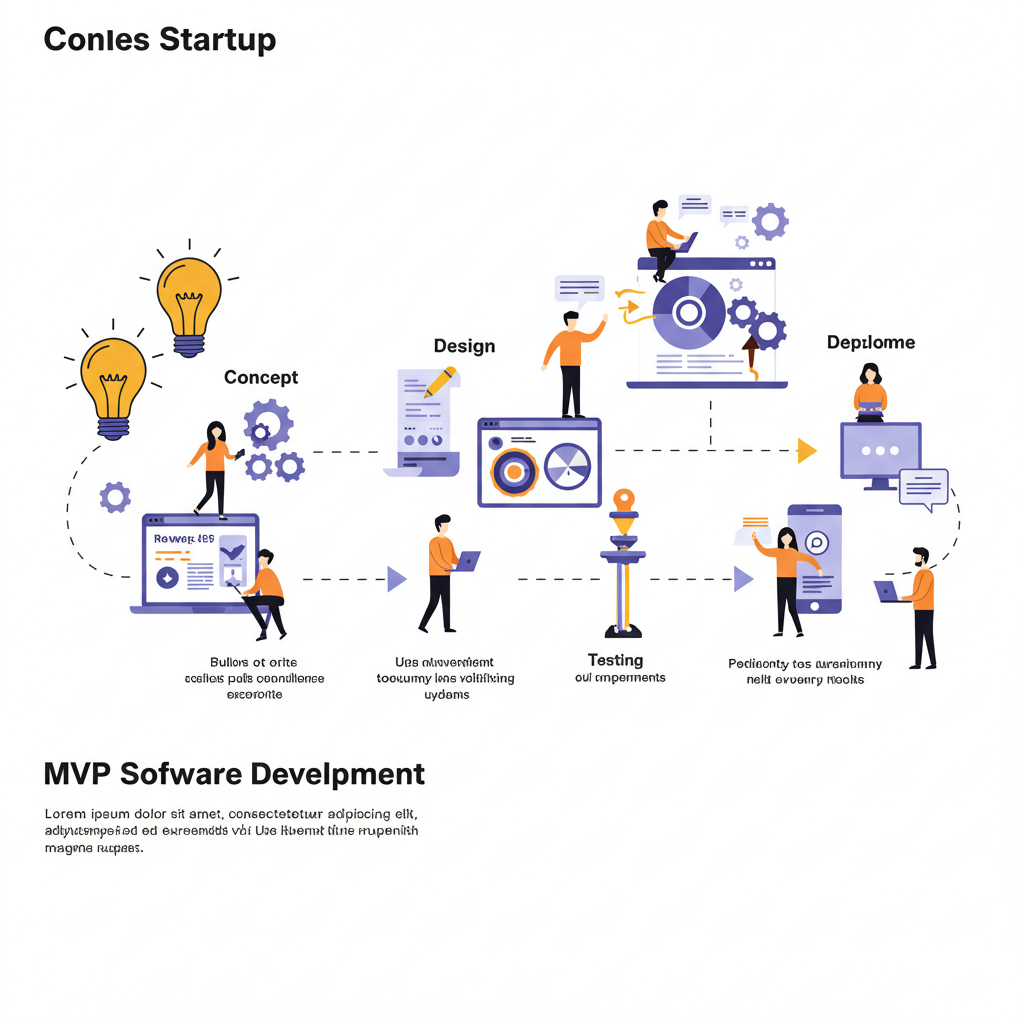We all know the feeling, a good idea that you know you can not possibly pass over. And going that extra mile and making that spark into something real, something people truly can use, that is where the momentum usually falters away. This is not because of a lack of vision in teams. The reason is that clarity and fast speed hardly coexist on their own. Budgets are tight, and so are the timelines of startups. The temptation to rush the construction process through the tech maze is what derails most projects. By that, MVPs excel. A proper MVP filters out all the noise and only concentrates on what is important. And when you need things to happen fastest, the choice of the development team may spell the difference between being grounded and getting off the ground.
Why Startups Burn Time on the Wrong Things
When new opportunities open, you should not be too eager to start building everything immediately. Most founders fall into the trap of working on add-ons too early. Hidden dashboards with elaborate controls, edge-case functionality, and integration layers are all finished before they’ve proven that the core idea is viable. By the nth month, the product is still not live, the budget has been reduced, and the team is fixing bugs instead of attracting users.
The right US MVP software development company doesn’t just build what you ask for — they help define what truly matters. Rather than guessing, you move faster by focusing on what’s critical, testing real user responses, and iterating based on facts, not assumptions. That way, you avoid wasting time on features no one uses and can focus on moving your product forward.
What the Right MVP Partner Brings to the Table
It is not a failure to build. Most startups fail at the early stages because they have built too much too soon, without sufficient real feedback. You do not have to add additional code. You require an answer. And that’s exactly what a team with custom MVP development solutions delivers: rapid validation, simplified execution, and a path forward grounded in real-world results.
- A tight, working product that answers one question: will people use this?
- A lean feature set focused on real user needs
- A launch plan that doesn’t take six months
- A dev team that handles tech while you focus on vision
- Room to pivot without throwing everything out
Where Most Founders Trip Up
What is one of the greatest errors that early-stage founders can make? Making efforts to behave as though they are already on the scale. It takes them weeks and weeks to customize UI animations, develop a complete set of features, and add every tool they believe they should want months down the line. It sounds good, and looks good – until no one visits it, or it fails miserably because they run through the cash before launch. MVPs do not involve polish. They are concerned about the evidence. An intelligent MVP does not look like the final product, but it is dedicated to learning what works. A custom MVP will enable you to save months, avoid rebuilds, and achieve traction after exhausting the initial momentum.
Why Digis Is Built for Early-Stage Startups
Digis knows what startups require: velocity, concern, and outcomes. They do not use guesswork to build their custom MVP. They teach teams to forget about overbuilding and instead build what is right or just enough. These are the reasons why Digis is a right fit right at the outset:
- They know which features matter early and which ones don’t
- They’ve helped startups validate ideas fast, without draining budgets
- They ship working products in weeks, not months
- They handle the build so founders can focus on users
- They make pivots painless by keeping code lean and adaptable
You need a real test
You cannot wait to have a polished product. What you require is a proper test – one that your users can experiment with, utilize, and respond to. That is the difference between progress and busywork. The appropriate team enables you to work more efficiently with minimal mistakes, focusing on results rather than excessive effort. You are not spending days or months developing features when no one ever asked you to do it. You provide users with information quickly and learn what truly matters to them. It is this clarity early on that makes winning startups. Waiting for perfection can never bring about any real results.

